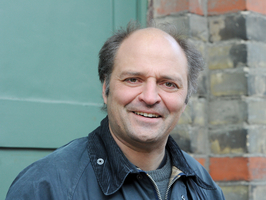
Ticklishness, Ambivalence and Play
Description
In my talk I will describe neural and behavioral correlates of ticklishness and playfulness in rat somatosensory cortex. Rats greatly enjoy being tickled, as evident from approach behaviors, 50 kHz vocalizations and joy jumps (Freudensprünge). At the same time, rats fight the tickling hand, show escape behaviors and, under some circumstances, also emit 22 kHz alarm calls. Cells in the somatosensory cortex are involved in the generation 50 kHz vocalizations during tickling. Somatosensory cortical responses to tickling predict responses to play behaviors, suggesting a neural link between tickling and play. Finally, I will discuss behavioural and neural correlates of hide and seek in rats. The evidence sugests that rats have elaborate cognitive and neural capacities for role play.
Speaker Bio
I grew up in Muenster, Germany and started to study biochemistry at the University of Tuebingen. I soon became interested in animal behavior and did a one-year internship at Hubbs Sea World Research Institute, San Diego on sperm whale bioacoustics. Thus, I decided to finish in biology rather than in biochemistry. My diploma work with Bruno Preilowski and Michael Merzenich at University of California San Francisco was concerned with rat vibrissal behaviors. Subsequently I did a PhD in the lab of Wolf Singer on the role synchronization of neural activity in the superior colliculus in the control of eye movements. After my PhD I felt that we will not succeed in understanding population activity without an improved knowledge about cellular computations in vivo. I therefore joined Bert Sakmann’s lab as a postdoc to do in vivo whole-cell recordings in rat barrel cortex. From there I went first to Erasmus University, Rotterdam to become an assistant professor and then to Humboldt University, Berlin, where I became a full professor. Our research group works on (1) the meaning of single neuron activity, (2) cellular mechanisms of complex somatosensory–mediated behaviors, (3) spatial representation, (4) social representations in forebrain.

